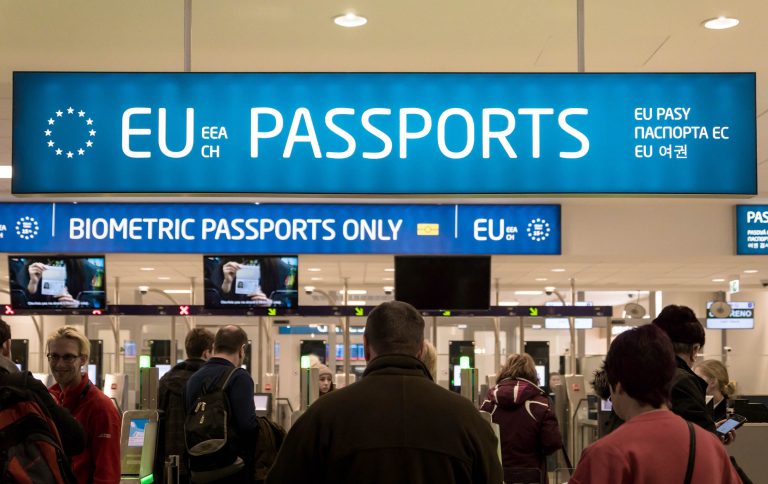As new technologies sweep in and replace old practices, the way we travel is becoming more high-tech and, hopefully, less complicated. However, the European Union’s plans to establish a new digital entry and exit system to replace passport stamps has yet again been delayed.
Though this new system was originally slated to take effect next month, according to Travel and Leisure, a delay in implementation was sparked by claims from Germany, France, and the Netherlands that their technology was no yet up to date.
The Entry/Exit System being referred to as EES will use a high-tech scanning process that calls on biometric data including face scans and fingerprint scans to document who is moving in and out of the EU and when. For those being scanned, the system will collect info including the travelers name, any travel documents used, and facial and fingerprint imaging along with the location and time of their entry and exit. The EES will be required for non-EU citizens to travel for a period of up to 90 days within any 180 days. No new alternate roll out date has been announced, but according to Ylva Johansson, E.U. Home Affairs Commissioner, airports are now considered a slow phasing in of the system in member states. Presumably the digitized system will help keep closer track of travelers who are complying with visa rules and would likely flag those who have overstayed their welcome.
Many other new technologies in the travel industry have also seen delays. In recent years, new facial recognition technology has been tested at airports and airline headquarters across the globe. At busy terminals like NYC’s La Guardia, kiosks outfitted with iPads are taking stock of travelers by photographing their faces and matching them to government database imagery.
Also new for the EU in mid-2025 is the ETIAS system (European Travel Information and Authorization System), which will require U.S. travelers hoping to enter the EU to complete an online form registering for their trip. With the form, travelers will also have to pay a fee of around eight euros. This system, like EES, has been delayed on various occasions. It was originally slated to go into effect in 2022 and was pushed ahead three times until its most recently announced date of mid-2025.


